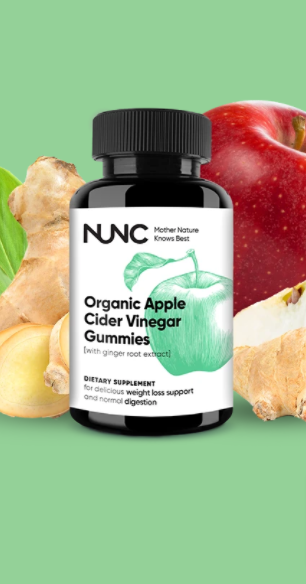Magnesium is an essential mineral found in every cell of our body. It plays a key role in over 300 enzyme reactions, helping us metabolize carbohydrates, proteins, fats, and other nutrients. The recommended daily intake for adults is 400 mg per day.
Magnesium for kids on the other hand is an important compound that supports normal growth and development. It helps build strong bones and muscles, improves sleep patterns, and supports mental health.
It is one of the essential nutrients that has been proven to improve brain function in children. What are the consequences of magnesium deficiency in children? And are Magnesium supplements a safe option to consider for kids? Read on to find out more.
Contents
The Importance of Magnesium for Kids
Magnesium is a mineral that is important for kids. It assists with the activation of Vitamin D and calcium to help keep your child’s bones nice and strong. Magnesium is also super important for healthy muscles and for keeping the heart beating properly, preventing tooth decay, and supporting the immune system as well as the nervous system when it’s under stress. It has a relaxation factor that even plays a role in promoting and improving sleep quality.
Magnesium is needed for more than 300 biochemical reactions in the body, including the proper functioning of nerves and muscles. It plays a key role in helping to regulate sleep, muscle function, and even blood sugar levels.
Kids who get enough magnesium in their diets are likely to be healthier and have more energy than those who don’t. Unfortunately, many kids suffer from a magnesium deficiency due to their poor diets. When the body does not get enough magnesium, it may result in certain health problems.
Symptoms of Magnesium Deficiency in Children
Magnesium deficiency can result in a range of health problems. Kids with low magnesium levels can experience multiple symptoms :
- Poor sleep and sleep disturbances, including staying up at night or being restless during the night
- Muscle spasms and twitching seizures
- Problems with movement
- Headaches
- Fatigue
- Depression
- Anxiety disorders and recurrent anxiety attacks
- Digestive issues
- Low energy and poor concentration
If your child is experiencing one or many of the previously mentioned symptoms, you might want to get their magnesium levels tested.
Magnesium deficiency can be caused by a number of factors including poor diet or digestion as well as chronic stress or illness.
Magnesium for Kids: How much do they need?
How much magnesium do kids need ? There is no definitive answer to this question as the amount of magnesium that kids need can vary depending on their age, weight, and overall health.
However, the recommended daily intake for magnesium is 130 mg for children aged 4-8 years old, 240 mg for children aged 9-13 years old, and 410 mg for teenagers aged 14-18 years old.
Best Magnesium-Rich Foods for Children
Magnesium for kids can be balanced through a healthy diet. Try incorporating magnesium-rich foods into your child’s meals to avoid the development of magnesium deficiency symptoms.
Magnesium-rich foods are often found in leafy green vegetables, nuts, seeds, and whole grains. These foods can be eaten raw or cooked.
Examples of Magnesium-rich foods include:
– Green leafy vegetables: such as spinach, kale, Brussel sprouts, and broccoli
– Nuts and seeds: almonds, Brazil nuts, cashews, chia seeds, flaxseeds, hemp seeds, macadamia nuts, pumpkin seeds, sesame seeds, sunflower seeds
– Legumes: black beans, navy beans, and pinto beans.
– Whole grains: quinoa, amaranth, oats, barley, brown rice, rye, and millet
– Dairy products
– Fish
You can also introduce magnesium-rich water into your kid’s routine to get them their daily dose of this powerful nutrient. Otherwise, consider taking a dietary supplement to help your kid reach the daily recommended amount of magnesium and maintain a healthy magnesium balance.
Magnesium Supplements for Kids
Magnesium supplementation is an option for parents with magnesium-deficient children. Although magnesium is found in many foods, it’s not always easy for kids to get the recommended amount. That’s why it’s possible for parents to support their children with magnesium supplements.
There are different types of supplements that can be used to support your child’s diet: liquid, tablet, or powder. Each type has its own benefits and drawbacks, so it’s important for parents to be aware of what type of supplement they’re using before giving it to their children.
Kids can take magnesium supplements safely, but it is always best to speak with a doctor before starting any new supplement. It’s also important to consult with a doctor before changing the number of supplements or medications your child is taking.
Do Kids Need Magnesium Supplements?
There is no definitive answer to this question as the need for magnesium supplements depends on the individual child’s diet and overall health. Some kids may benefit from magnesium supplements if they are not getting enough magnesium from their diet, while others may not need them. Speak with your child’s pediatrician if you have any concerns about your child’s magnesium levels and whether or not they may need a magnesium supplement.
Can Magnesium be paired with other Nutritional Supplements?
Magnesium can be paired with a variety of different nutritional supplements depending on the specific needs of the individual. However, some potential combinations that may be beneficial include magnesium with calcium, vitamin D, and omega-3 fatty acids. Speak with your child’s doctor about the most appropriate combination for your child.
What Nutritional Supplements to Avoid pairing with Magnesium for Kids?
There are no specific nutritional supplements that should be avoided when pairing magnesium with kids. However, parents should consult with their pediatrician before giving their child any type of supplement. Magnesium can interact with other medications or supplements and may interfere with the magnesium absorption into your child’s body. So it is important to be aware of any potential interactions.
What is the Best Form of Magnesium Supplement for Kids?
There is no standard answer to this question as different forms of magnesium supplements work better for different people. Still, a good form of magnesium supplement for kids is magnesium glycinate, which is absorbed well by the body.
Read more about:
Biotin for kids: How Do Hair Vitamins Promote Good Health in Children?
The Truth About Magnesium Glycinate vs Citrate Is About To Be Revealed
What Types of Magnesium Are Best For Your Body? (Differences, benefits)








0 Comments